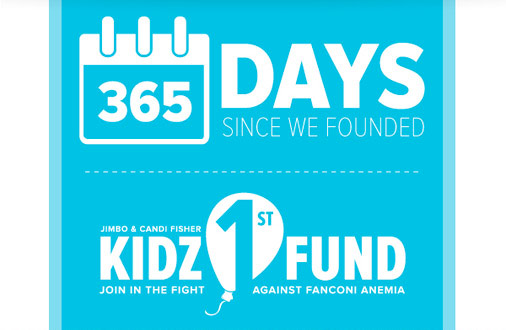Kidz1stFund turns one
August 29, 2012
This August marks exactly one year since FSU football’s head coach Jimbo Fisher and his wife Candi started the Kidz1st Fund to fight for a victory unattainable in Doak Campbell Stadium.
In 2011, the Fishers received news that their youngest son, 7-year-old Ethan, was diagnosed with Fanconi Anemia (FA), a rare genetic disease that decreases red blood cells, causes bone marrow failure and increases risk for cancers. To fundraise for a cure, the Fishers established in Aug. 2011 the Kidz1stFund, a non-profit foundation whose proceeds directly benefit research at the top FA research and treatment facility in the nation, the University of Minnesota’s Amplatz Children’s Hospital.
“It’s remarkable how much the fund has accomplished in just a year,” said Dr. Margaret L. MacMillan, Ethan’s doctor and co-director of the Fanconi Anemia Comprehensive Care Clinic at the University of Minnesota. “The fund has allowed us to focus our efforts, with more money available for research so we can get closer faster to the ultimate goal—a cure.”
$500,000 in research funding wasn’t the only help the Fishers’ fund garnered in the first year, though. After 37 individual donor drives, the fund added 1,710 names to the National Marrow Donor Database. One of the individuals who signed up because of Kidz1stFund also saved a life by donating marrow to a matched patient. “To me, that’s rewarding because another person out there has been helped by the benefits of the fund,” Fisher said. “Had we not done the drive, it may have taken longer to find a match, or it may not have happened at all.”
Thankfully, the horizon for treatment research of FA is bright, especially with increased funding. 15 years ago, the survival rate of patients with FA was 20 percent to 30 percent. Fifteen years later, the survival rate is 85 percent. The goal is now 100 percent. “The research takes time, but with help of funds been able to see the change happen sooner and maybe in a few more years it will be 100 percent,” said MacMillan, who will be speaking to FSU students this November about the rare disease. The doctor also notes researching Fanconi Anemia would not only improve quality of life for F.A. patients, but also sheds light on other diseases as well.
“I would like to say thank you to students who have done a wonderful job getting behind us,” Fisher said. “We are so grateful to those who help any way they can. Hopefully we will be supported for years and years to come. With support, we can find a cure.”


